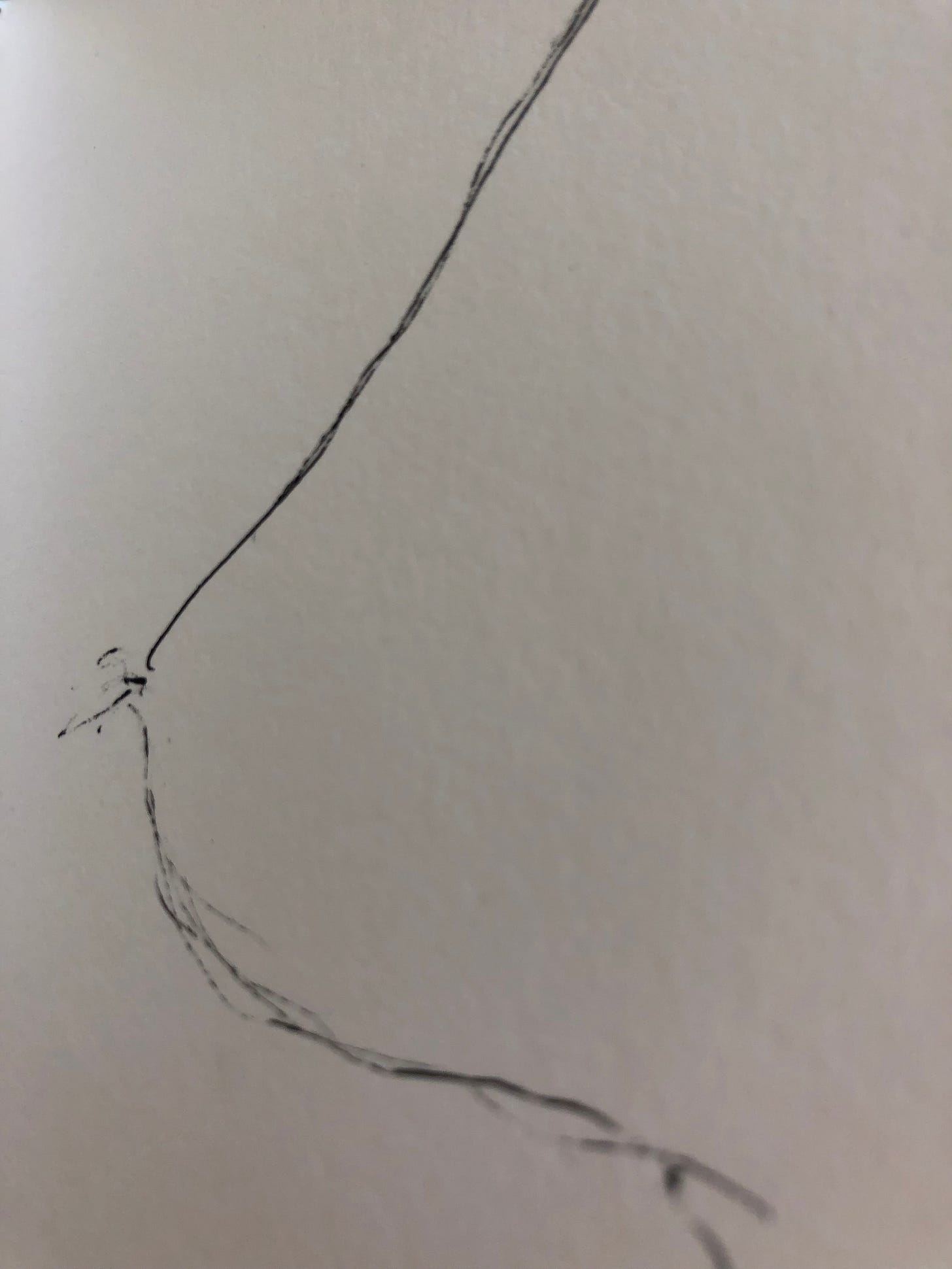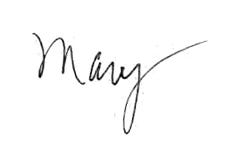Note: You can start reading here or anywhere, then go back. See Table of Contents. Come in the middle? Robert is the narrator who discovers after his wife Lena has died that she had a lover, Isaac. Evan is Isaac’s wife. Robert is on a search for how he lost Lena: He’s creating the story through memory, invention and a search for the truth and his role in what happened—and by stalking Isaac.
Lena
She crossed the Mall, went to her office and opened the translation of the fragment of Enoch found in the Scrolls. Again she read the elusive translation: And I went into the tongues of fire and drew nigh to a large house which was built of crystals. She read and waited. The stars and lightning, the house that was built of glass and fire, hot as fire and cold as ice. She read of Enoch’s vision, of the Merkavah, the chariot. She went through the darkness to the seven mountains of colored stone, to the pearl, and to the jacinth, and to red stone, and she waited to dream, to go away. But no dreams came, no release and no relief. She was left only with the way she always felt on waking, with the missing, the loss.
Now she considered telling me, who’d taken her barren. “Barren” had been the explanation. It happens. I’d not asked for more.
She must have considered telling me about the baby, but the complications of the explanation—Who was the man? —would have overwhelmed her when marriage to me seemed inevitable.
She must have hoped for Isaac to return.
She was thirty-eight when I asked her to marry me. We’d been dating for three years and been sleeping together occasionally for two of them. She must have concluded that whatever she’d felt for Isaac, despite the abortion, had been romantic idealizing.
But could she still place her hand on her breast and feel his hand? The way he waited for her, his kiss, his lips, his tongue softly, then desperately seeking her, how he had brought her so quickly to arousal that she could feel the contraction of her vulva, the squeeze that he’d describe to her, the slight jerk of her hips that he was aware of, that came from her sex, that came from his mouth, from his hand on her breast, on her nipple. With her hand on her breast, did she dream of him and the baby?
But he’d rejected her and she’d had to accept that.
I was steady and present. When children needed to be discussed, in her case, the fact that she couldn’t have a child, I’d accepted that without question.
It was nearly twelve years later, four involved with Isaac again. Now when she undressed for bed and looked as she so often did at her naked body—Did she do this after she and Isaac had been together, her way of trying to see what he had seen? —she felt old. Old, at the sight of her skin that was crepey above her knee. Old, at the sight of her breasts, though still fine in a way, with a slight tilt upward at the nipple. She saw how her breasts had dropped, leaving a certain flatness at the top of her chest. She must have thought of this place on her chest, this narrow indefinable place, where her youthful breasts once sat high, as a worn path like all the places she’d been without Isaac.
She was wearing out. Perhaps telling me would have given order—a deceit of sorts corrected. Order restored.
She’d confide in her husband, and the need for her lover, for Isaac, would disappear. Maybe the something missing lay within her reach—me in reach? But the complications still overwhelmed her—who was the man? A lie would follow and she’d be back in the conundrum of deceit.
She took up Enoch again and followed him through the fires, from the east to the west where the fires ran without resting, and she was so tired. She tried to take up the brochure she was writing for the exhibit, but all she could see was Enoch in fires, following the paths of stars and lightning. So, she went home early to try to make a light, fragrant dinner for me. The food with its colors and odors would come from her thoughts, her refrigerator, her windowsill full of tomatoes she’d bought yesterday at Fresh Fields on her way home from Isaac and Evan’s. The meal would smooth the way to a life back in order. Telling him (telling me, telling me), a confession, of sorts, however limited, struck her as hardly the answer.
At home, she went to the buffet in our dining room and opened the double doors beneath the drawer where she kept her mother’s sterling silver tableware. She took out the pale yellow Limoges cups and saucers. There were six.
Her mother had never used them. Her mother, who lived in the narrow house, who longed for the window over her sink, collected these, too expensive for her budget or her life. How could she use these? She must have thought that. Yet, when she’d had a bit of house money left over, she saved it and went downtown in Baltimore where she lived to buy herself a cup and saucer she would never drink from, never serve tea in, never bring out for guests. Lena had watched her over the years of childhood take them out and wash them in the porcelain sink, lay a fine linen cloth on the porcelain drainboard, place each cup and saucer there. Lena had seen her hold up the china to the sun in the window that looked out on the alley. Lena had seen the sun through the cup, the china made transparent, its fragility firmed in memory through light.
When Lena was in her forties and her mother was old, she gave them to her. “Take them. They’re like you,” she’d said.
Lena went to her window over her sink in her large kitchen and held the cup to the sun, low in the sky and full on the china. Like the bones, she thought. Like the baby that died. Like the possible that never came to be. And the cup in her hand, a fragile memory of her mother.
She washed the six cups and saucers, dried each one and replaced four in the buffet. She set out two on the dining room table and prepared gazpacho in her food processor. Tomatoes, peppers, scallions, cucumber, onions that she chopped in large chunks first and then swirled with cilantro, olive oil. She poured a small can of tomato juice over all, squeezed a lime, pulsed the machine so that it wouldn’t puree the vegetables and poured a half-tea-cup full into each of the pale yellow china cups—the color of the soup in the cups, the light through the rims, the yellow and reds like rouge on clouds, like sun before night when the moon begins its rise.
She took out two small silver teaspoons, sat at the table and waited for me.
When I came home, I took the mail from the front foyer, walked briskly past her to the kitchen where I sorted and saved and tossed mail into the trash—my evening ritual while I was still in my suit.
She knew I’d come shortly through the room again with the bills in my hand. I never did this any other way. I never took a sip of wine that she might have set out for us. I never tasted the sauce simmering on the burner. I did what I needed to do in the order I was used to. I went upstairs to change my clothes.
This had become a joke between us. “You’re going up to change?” she’d say, while she offered me the glass of wine she knew I wouldn’t take. “Yes, I’ll be different when I come back.” She’d complained of my forceful, silent entries into the house. And I’d accommodated with this verbal nod to what she hoped for and was not to have from me.
Now I mumbled, “The electric bill is up. Did you push the thermostat on the air down again?” I didn’t wait for an answer. “How many times have I told you that it’s inefficient to move the thermostat?”
She looked at the cups, the gazpacho, walked past me to get from the kitchen the cilantro she’d chopped and sprinkled a bit of green on the cool surface inside the cups.
I waited for an answer with the electric bill in my hand.
“You’re going up to change?” she asked.
I folded the bill, walked back through the dining room. “I’ll be— What’s this? Your mother’s cups?”
“Yes.”
“I’ll be back,” my voice deeper, with a wiseacre swagger in the words as I tried to imitate, to be somebody else. It was not the harsh, sharp voice she heard ring against the copper pots in her kitchen like a harsh note from an out-of-tune piano. “Like Arnold,” I added, referring—Oh, yeah, it was trite, I know—to the big burly actor who announced this at the end of the shoot-em-up movie Lena couldn’t name, surely hadn’t seen.
But she laughed and recalled how these exchanges had come about, how she’d said again and again, “Please don’t yell at me.”
I, again and again, had asserted that I didn’t yell.
She had to agree that she wasn’t married to some brute who screamed at her, but still my words seemed to yell, to hold her, to punish her for the inconsequential: thermostats, the sharp carving tongs placed with the points upward in the dishwasher, the suitcase not replaced exactly as I would have done it. And the petty anger, how she saw it even when she tried to understand the ‘why’ of it. Why couldn’t she simply accept it, take me as I was? I’d taken her as she was. And I’d been trying.
When I returned, I wore my baggy sweat shorts, my legs bare. She used to admire my strong frame—the way everything about me seemed hard like muscle, toned through weights, edges sharp with lean bone.
But now she looked at my knees, each with a spearing bone, so surprising that she’d once asked Isaac, “What could cut me in the night on his knee?” Isaac said, “The head of the fibula.” “A fibula,” she’d said, “like the clasp on a buckle.” He’d laughed, “That’s not the way I learned it. But I suppose the condyle, that’s the end of the tibia, the other long leg bone, does fit sort of that way with the end of the fibula—but not really. Lena, where do you learn this stuff: fibula and belt buckles?” She hadn’t answered. She simply knew that she fit with me the way the tongue fit into a hole on my belt.
I had on the T-shirt I favored, the one that had softened with washing and whose logo could no longer be read, a shirt like the ones I often wore to bed, where she used to lay her head against the cotton, against my long, solid back. At night for too long now she’d tried not to fall into that old pattern. She slept at the edge of the bed.
I sat down at the dining room table across from her, looked at the cups and asked, “Are you all right?”
This was the second time today she’d been asked this. Evan this morning.
“Yes.”
“The cups? Your mother’s cups. What’s going on?”
“We should use them more often, don’t you think? She’d want me to do that. That’s what I think, anyway.”
“Okay, but there’s not much in the cup. I’m going to need a bowl.” I went to the kitchen and came back with a bowl of gazpacho in our every-day china. I ate that first and then sipped from the china cup, ooh-ing and ahh-ing over the flavors.
“Are you making fun of me?”
“Would I do that?”
“How was your day?”
“Boring. Nothing to tell. Tell me about yours.”
She usually would fill me in on her research, on how the exhibit was going, on something notable she’d discovered, or something she’d read, re-discovered in the process of preparing for the Scrolls and artifacts. She wanted to say, Blue light, fire, but she’d make no sense and I’d be annoyed, rightfully so. She said, “Blood Knot. Remember that play we saw in New York?”
“Not really. When was that? Anyway, you always remember stuff like that. I forget.”
“It was on our honeymoon. It was about the way people are bound to each other—at least, that’s how I remember it. In the psalm I’m working on the speaker says, ‘I purposed to make sport.’ ”
“What does that mean?”
“To make love, the way when we make love, we make a child and then we’re tied by blood.”
“Aren’t we tied that way by marriage, without the child?”
“I don’t know, are we?” So, she would tell me then about the scar inside her. But the shame of it. On the brink of disaster.
Who was the man? She said instead, “You must have something to tell about your day. Tell me anything.”
“I’m an administrator. What’s there to tell?”
“You’re a financial analyst. We both know that.”
“It’s not what I do. Sure, I once hoped it would turn out that way. But no.”
“But you do that work on the budget.”
“That’s more accounting than anything else. And then there’s a new hire today—my area and I didn’t even know about it except that now I have to budget it in, figure out benefits. This is side-line stuff.”
“Then tell somebody—William.” He’s chief lobbyist of The Institute, the lobbying group where I’m the chief financial officer. The lobbyists spend their days standing in lobbies waiting for congressmen to emerge or invite them in. They, with their law degrees ready to skew legislation that would favor one company or industry over another, stood in the lobby with the knowledge that they’re central. Budgets are the marginalia of their lives and the officer who manages them is to be managed and kept in the margin where he belongs.
“I’ll leave at five-thirty, not count on the job, not care.”
Something I’d said before. A refrain. A way to tell her I cared more for her or for home, at least, than for the job.
And she, present but absent at home. She said, “Let your feelings be known. Maybe what’s been done hasn’t been on purpose.” I see now she must have said this more for herself than for me.
“What I’ll do is take Marge with me.” Marge handles human resources for me. “We’ll talk to William together. She’s been marginalized too.”
On the margin. She, with Isaac and Evan. Isaac, with her and me. Evan, with Isaac and Lena. She said, “On the brink.”
“What do you mean? Are you listening? You don’t listen to me.”
“Yes, yes, I’m sorry.” What was he saying? she must have thought. Marge, Marge at work. “You should get off the brink of stuff. They can’t plan a strategy without a budget. The two are a handshake, need to drive each other, to mix a few metaphors. Sorry about that. Anyway, speak to William alone, be Marge’s advocate but talk with him about your status.”
“What’s for dessert?” I said and turned away.
We hadn’t even had dinner, only the gazpacho and some wine that I’d now drunk. She heard in this shift of subject, in my tone of voice, You don’t belong in my affairs. She said, “Apparently I’ve crossed the line again.” But then she had drifted away, hadn’t she?
“And what does that mean?”
“The way I did when we talked about your job before.” In anger once before I’d told her she needed to be right, needed to have all the answers, that I didn’t want this from her. But I’d later done what she’d suggested. She was hurt then, now again.
“I don’t know what you’re talking about. Before. When? Lena, you’re drifting. And I don’t think it’s just your normal mind wandering. I can understand that. You’ve always been the master of the non sequitur, but I used to be able to follow you. Where are you?”
The sound of my voice—sharp, I was often sharp. I liked to think razor sharp, whip-smart sharp—rang against her ears.
Did she think of the baby’s bones on the table, of the fragment in Isaac’s hand, of a fragile teacup laid carelessly on a hard porcelain sink?
I confronted her.
She could have told me about Isaac. End it all. Tell. Break with me? Break the bond as if it weren’t already broken. But to hurt me that way? And then if I told? That would break the bond between Isaac and Evan. And the baby, to tell Isaac about that could break all the bonds. She must give up Isaac. She must have known that. “I’m with you,” she said.
“I’m not so sure anymore. But I’m with you, don’t you see that?”
Did she see it? “You have changed. I see that.”
“Lena, I’ve always been with you.”
“I meant you don’t yell at me—not that you ever really yelled at me, but you know what I mean. And anyway, how unfair of me to ask for change—not take you as you are, to ask you to—oh, I don’t know—present a façade here in your own home, with me. It’s too much to ask. It’s wrong.”
“Think of that building that’s going up next to the gym. Same façade. It stays. One of those historic preservation projects. I’m your historic project.” A paradox lay between us: The façade is true; what’s behind gets re-made. Where is the falsehood?
“What do you mean? I don’t want you to be my project.”
“All sorts of things can change inside, office space, walls, but that façade won’t change. What’s going on inside of me I can’t explain. But I do know I’m here like that old building.”
“And inside? How are you?”
“I don’t know. I’m beginning to think that depends on how you are.”
“Confused. But maybe that’s how everyone is deep down.”
“Deep down, I think I’m from Iowa.”
She laughed, the first time in so long that I’d made her laugh. “What does that mean? Polyester pants, Jell-O? Does it mean that deep down inside you ride a tractor?”
“No polyester pants. Now, Jell-O and tractors—another story.”
“Okay, deep down inside I’m from Baltimore. What does that mean?”
“It means you’re from the town that hosted the all-star game in ’93.”
And again she laughed.
“Lena, I know I can be abrupt, sharp—we’ve talked about all that. And the job. So what if it isn’t perfect? Whose job is? I want to come home, not work till I’m sixty-five with nothing but numbers in my head. I want to play the piano again. Maybe even take lessons again. But what would be the use of any of that without you?”
“But I’m here.”
“Are you really? Here we sit with your mother’s cups. We’re drinking tea-cup portions of gazpacho, for some reason only you know. Well, at least that’s what you’re doing. Is this about your mother? Lena, Rose has been dead for years now. But if that’s what this is about, then talk to me. I don’t really need job advice. Okay, well, maybe I do, but it’s small potatoes. At least I know that.”
“Do you remember the Madeleine cookies she used to make?”
“Sure I do. Those lemony things. She’d bake them and you’d talk some literary mumbo jumbo about them, but whatever that was, they were sweet and light. What’s this got to do with anything?”
“I used to say ‘the Proustian cookie of remembrance,’ an effete thing to say.” She’d read Proust. I don’t even think then that I had. That part’s not worth remembering. “But it’s the way they’re shaped, like small leaves or a tiny hand.”
Lena’s mother had made these cookies for her brother, Lena’s uncle, the youngest of her eight brothers and sisters, made them when he was dying of the cancer in his pancreas, when he’d eat nothing, while he starved toward death, when he could bear only a bite of this cookie in his mouth and only from the hand of the sister he loved. Lena had watched her mother let him go, watched her mother when she’d stood beside his grave, the gaping dirt, the open space like a cry, an open mouth— “It called out to me,” she’d said. “We die out of order.” Her mother was the oldest and indeed was soon to follow.
What would her mother have said if she’d known all that Lena had done, the baby, Isaac. Yes, out of order.
“Yeah, so?” I said.
“Oh, nothing, maybe if we’d had children. If I could have. If we’d adopted?”
“Lena, this is ancient history. You’re too old for a baby now. Well, who knows maybe you could handle it. But I can’t. And what’s that got to do with anything?”
“She used to make them for Abe before he died.”
“So? Lena, what are you talking about? You’re not making sense.”
“Yes, I am. She made them for Abe and then she let him go?”
“Is that what you want? To be let go? Then, for God’s sake, say it.”
“No. It’s not what I want.”
We were in the kitchen. The fragile cups were on the counter. “Then what?” I said. “Are you telling me this isn’t working? Are you speaking in riddles to tell me that? You started out with something like ‘making sport,’ for God’s sake. Is that what you’re doing with all your quoting and remembering? Making sport out of me? Well, I’m sick of it. If you want out, say you want out. You’ve skirted around it, that this isn’t working, and, finally, I agree. Maybe this isn’t working and you’d better think about what you want.”
Out of order. Yes, broken. She must have known I didn’t mean it when I said I agreed. She must have known my forceful speech was a question: Tell me you still want me, love me. Do you?
She was washing the cups. Her hands trembled. She must have feared she would break one.
I said, “I can’t escape whatever it is that I’ve done in the past. You won’t let me. I’ve done everything I can, changed, become what you want. But it’s not enough. Nothing is enough. I can’t do any more. It’s not me.” I leaned across the island in the kitchen. I must have been red-faced, could feel the flush of my anger. “You have got to tell me what’s going on with you.”
She looked at me. We were separated by a piece of granite—the island, hard stone between us.
“Answer me,” I said.
With her head and shoulders bent in the angle of exhaustion, she began to prepare pesto, took the basil, asagio and parmesan cheeses from the refrigerator, held the bottle of olive oil in her hand.
But she’d not put away the cups. They’d get knocked, broken.
“I’ll dry and put away the cups,” she said, “and then make dinner, pesto with angel hair pasta. Go sit with your wine in the other room. Give me a few minutes to get organized.”
“This is about you and me and you want to get organized?”
“The cups, my mother’s cups.”
She did owe me an explanation. She must have known that.
She stalled. “A few minutes alone to take care of them.”
“That’s what you want. To get away from me. Why don’t you say it?”
“A few minutes alone. That’s all.”
I walked out.
I now see there was no explanation, nothing to tell me.
Perhaps she thought, Finally alone, change the flat perspective of her life, tell someone about the baby. Eroticism stilled, a metaphor for what she needed to do—stop. She was caught in the in-between. Between sea and sand. As if the tide pulled her, and she must have slid away from the scent of Isaac’s neck, the curve of his shoulder where she’d lain her head. She was alone in this place of not-knowing. Like death, like the cemetery where she’d hoped to place the marker, where both her parents lay.
What if I had died?
Did she hope I’d die? Did she imagine me in a coffin? The veins in my face, brown, orange, red, blue, multi-colored tattoos of death, my skin shrunken to the skull.
I am the skull that grins in at the banquet.
Lena stood with a cup in her hand. She would have been horror-struck at the wish inside my image. “Like you,” her mother had said about the cups. How? She’d wanted to ask that day her mother gave the gift.
“Mama, Mama,” she said out loud and saw me walk back into the kitchen.
I now think she called out for an answer: Tell me what’s right, what’s wrong? In the darkness of the unsaid, of all I imagine now, I knew only how to battle.
“Who are you talking to?” I asked. “Put the cups away. Let’s get on with dinner. You don’t want to talk. Let’s at least have dinner. Can you do that? Can you get on with it?”
I could see the light in the fine yellow china that she held up to the florescent fixture above the sink. In this cool light, I could see its fragility, but I take notice only now.
If I had died—finally, no one to tell her what’s right, what’s wrong, sort the mail, put things away properly, get on with it. Oh, I had stopped this. But still, I had so many rules. No, nothing is to pile up on the table by the door. She never knew when she might cross one of my lines. Not that the lines mattered, that my “rules” mattered. But all the lines together must have seemed like a wall between me and her. How many years had I repeated what need not have been said?
And if she died? She must have thought this too. Did she know then that she was ill? I think now she did see herself dead, with the taste of the unspeakable in her mouth, the taste of death in her mouth—her mother, her father and her baby like cut out paper dolls held together at the fingertips, the pull of the grave as if someone waited only to unfold her shape from the cut-out figures.
Before she died, after I’d seen that gesture, his hand in the strands of her hair, I stood outside the room, the house where she lay, where she died. I stood with Isaac with the wind in our ears, the perfume of wind in hair, the way I remember her. We stood together. I told Isaac before I began this journey of discovery, “Ah, Lena, she could throw the love of a man across her shoulder like a sweater.” And Isaac replied, “Careless, glorious Lena.”
We didn’t know she’d died long before, that she died when she cut the baby out of her body, when she’d held the maple leaf in her hand, when she’d said, “Like gold dust on the graves,” referring to the red-gold leaves on her parents’ graves that lay even, grassy.
And her grave—I now think she could see it that day in the kitchen with the cup in her hand. She’d be six months gone and not settled, a mound of earth and sod if I’d buried her in the plot where her parents lay. She’d lie there and accuse us both.
But it was fire that would consume her. Fire that she would ultimately choose.
Lena dried the pale yellow Limoges cups. She passed me where I sat at the dining room table. She had to squeeze behind me to open the buffet doors. I sat with my head in my hands, as if I didn’t see her, and wouldn’t move my chair to ease the access.
But she persisted, opened the doors at an angle, barely able to place the cups without breaking them.△
Robert, chapter 17, coming next
Table of Contents
Love,











Unforgettable. Masterful. Oh my Mary. I listened to this chapter driving into town and nearly had to pull over, my heart racing alongside your words. The cinematic intensity is spell-binding, beyond stupefying. And those little cups. Oh how Lena only wanted to know “they” weren’t wasted, that nothing had been in jest…only to realize her buried, unspeakable love eventually buried her too.
Oh Mary, is this the final chapter? I’m overwhelmed with emotion.
How does this just keep getting better, Mary? You have such a beautiful talent for capturing what is spoken between words, between hearts. The exchanges between robert and Lena are just masterful here.
And then I think about the imagined conversation ms robert narrates and how you capture this subtle yet profound difference in the ways the remembered and the imagined dialogue and interactions are presented.
Stunning, my friend.